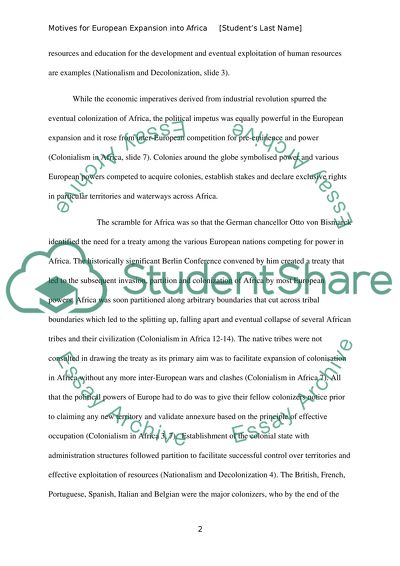Retrieved from https://studentshare.org/miscellaneous/1680818-discuss-the-economic-and-political-motives-for-european-expansion-into-africa-in-the-19th-century
https://studentshare.org/miscellaneous/1680818-discuss-the-economic-and-political-motives-for-european-expansion-into-africa-in-the-19th-century.


